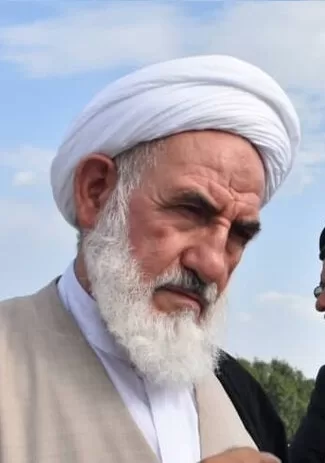The Execution
In a recent development that has sent shockwaves through the international community, Iran has executed a man found guilty of the murder of senior cleric, Ayatollah Abbas Ali Soleimani. The execution marks a significant moment in Iran’s history of capital punishment.
The Incident
Ayatollah Abbas Ali Soleimani, a member of the Assembly of Experts that selects the country’s supreme leader, was killed on April 26, 2022 in a bank in Babolsar city in the northern province of Mazandaran.The convicted man, a bank guard, was held responsible for the fatal shooting of Ayatollah Soleimani. The incident occurred amidst a period of civil unrest that has been plaguing the Islamic Republic.
The Victim
Ayatollah Soleimani was a respected member of the Assembly of Experts, a panel responsible for overseeing the position of Iran’s supreme leader. His untimely death not only stunned the witnesses of the shooting but also sent ripples of shock across the nation.
International Criticism
This execution has drawn criticism from various human rights groups. According to Amnesty International, Iran is second only to China in terms of the number of executions carried out. A report by the Norway-based Iran Human Rights group revealed that Iran has executed over 600 people this year alone, marking the highest figure in the past eight years.
Iran’s Approach to Capital Punishment
The severity of Iran’s approach to capital punishment is underscored by this execution. However, it’s worth noting that under Islamic law, the sentence of qesas (Iran’s Islamic law of retribution) can be waived if the victim’s family agrees to spare the convict.
Growing Discontent in Iran
This incident adds fuel to the growing discontent in Iran, which has been grappling with nationwide protests over economic, political, and civil rights issues. The country is currently facing economic instability due to the collapse of the nation’s currency, the rial, and uncertainty over its international relations following the breakdown of Tehran’s 2015 nuclear deal with world powers. This execution is likely to further intensify the civil unrest in the country.
The Impact of Soleimani’s Death
Ayatollah Abbas Ali Soleimani was a significant figure in Iran’s religious and political landscape. His death had a profound impact on Iran for several reasons:
- High-ranking Cleric: Soleimani was a member of the Assembly of Experts, an 88-seat panel responsible for overseeing the position of Iran’s supreme leader. His role in this influential body made his death a significant event in Iran’s political sphere.
- Public Shock: The manner of his death, being shot in public, stunned both bystanders who witnessed the shooting and the wider public. This shock was amplified by the fact that it was the most significant attack against a cleric in Iran in years.
- Symbol of Authority: As a high-ranking cleric, Soleimani was a symbol of the religious authority in Iran. His death could be seen as an attack on the religious establishment itself.
- Civil Unrest: His death occurred during a period of civil unrest in Iran, with nationwide protests over economic, political, and civil rights issues. The killing added fuel to this discontent and could potentially intensify the civil unrest.
- International Criticism: The execution of the man convicted of Soleimani’s murder drew criticism from various human rights groups, further straining Iran’s international relations.
In summary, Soleimani’s death had a profound impact due to his high-ranking position, the shocking nature of his death, the symbolic attack on religious authority, the existing civil unrest, and the international criticism following the execution of his killer.
A global media for the latest news, entertainment, music fashion, and more.




